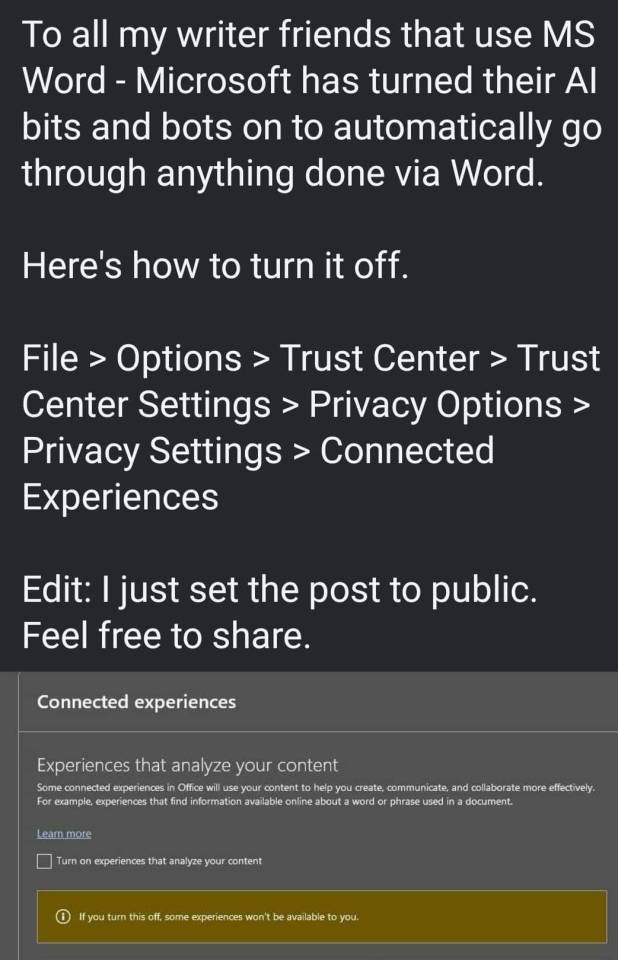Yesterday, I presented a class of 15 English students with three options.
What, I asked them, should the university’s policy be?
A total ban on using AI for assessed coursework
AI to be allowed, but how it is used has to be declared
AI to be allowed without any declaration
I thought there would be a mixed response, with some hesitation.
But every hand in the room instantly went up for 2.
Snap, like that — as if it wasn’t even a question.
Right now, universities are offering a halfway house, and they are not choosing their customers’ direction of travel.
No institution — as far as I am aware — is insisting that their students have to use the library, and consult physical copies of books, and make on paper notes, and submit handwritten essays.
(Perhaps there is a theological college somewhere. Maybe you know of one?)
Every university realistically expects the majority of undergraduate research and all writing up to take place on laptops and phones.
Inadvertent and unavoidable use of Artificial Intelligence in basic research has been happening ever since Google began foregrounding AI-generated answers above weblinks.
(I’m not being naive that AI was previously involved in ordering the responses — the list of links and snippet summaries. However, that was about the choice of sources then to be consulted rather than the phrasing of the answer itself. I think there is a difference. Old Google is the online world sorted by AI, in new Google is it entirely mediated by AI. Perhaps that’s less of a difference than I am suggesting, and to point something out it really the same as summarising it.)
In the past couple of weeks, I’ve been reading posts telling me how to turn off AI deep, deep within my Microsoft 365 options —
I don’t believe that more than one in a hundred students would ever do this.
There is, I sense, very little fundamental opposition to AI on humanist or Marxist or other grounds.
Today’s Guardian has a story headlined Writers condemn startup’s plans to publish 8,000 books next year using AI.
But they are opposing the creation of what looks very like a vanity publisher, using AI to replace the jobs of editors, copyeditors, proofreaders and printers.
All of those are jobs that the students in my classroom might once have aspired to. And they do know that those occupations are disappearing into automation or becoming essentially unpaid. But in their day to day studies, they realise that they are already enmeshed in AI. They want to get good at using it, because being good at using it will be the only way to guarantee future employment.
Recently, I’ve been attending university open days with my son, and this is the line that I’ve heard several times —
AI is a tool, like any other.
The institutions whose lecture rooms we sat in spoke proudly of the partnerships they’d started with AI companies.
I don’t believe AI is a tool like any other. It’s a culture we’re in the middle of having imposed upon us — at least, we are having the various shapes and interfaces of that culture imposed.
It’s like advertising.
I would like to avoid all adverts; I can’t. In this culture, I am not permitted that option. I can install AdBlock and Facebook Purity on my browser, but they get through elsewhere. They get through pretty much everywhere.
Maybe soon I will be able to get some Ray-Ban Meta glasses and pay a subscription for AI to replace all adverts in my visual field with calming images of waves or trees.
If that’s ridiculous, it’s no more so than trying not to see how Artificial Intelligence is obtruding everywhere we look.
Going back to my students’ unanimous vote, they know there is no blocking AI out of what they encounter in the world or in books.
AI is between them and any text they read, because they’re now reading it within an unavoidably AI culture.
These are my thoughts this morning.
Yours?




If, in every canard the tech industry uses to justify AI, you replace “AI” with “Other people’s work, taken and processed without their consent, compensation, or even knowledge”, I find the moral landscape becomes a lot simpler.
I just bought a typewriter (Imperial Good Companion c.1955).